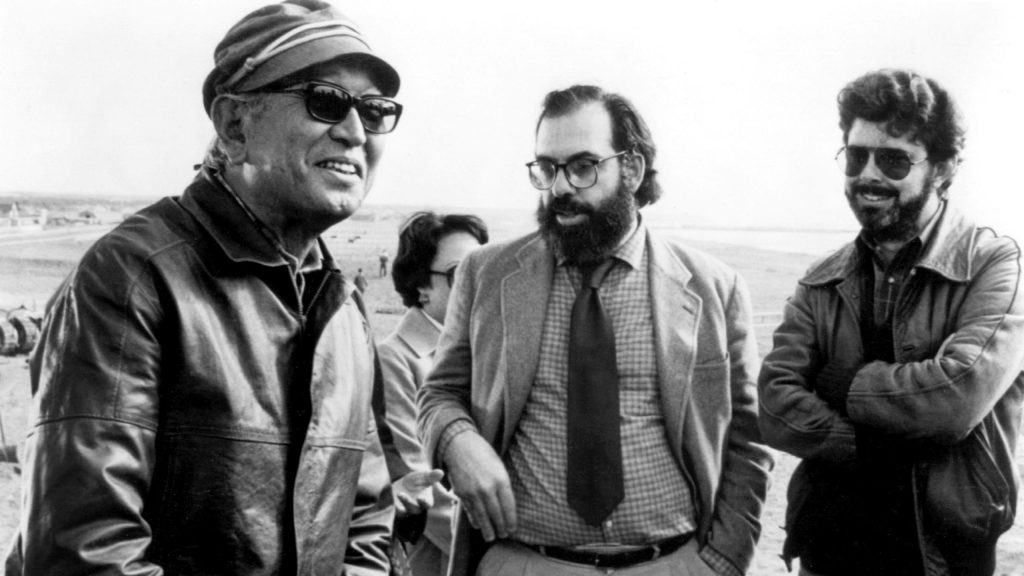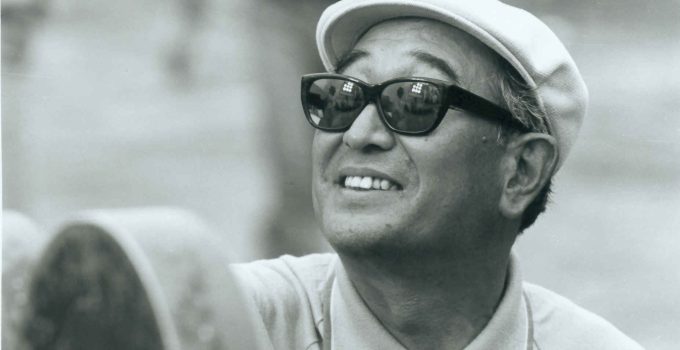Akira Kurosawa, known by his Romanized name, emerged as a legendary figure in the world of cinema, leaving an indelible mark on both Japanese and international film industries. With a career spanning decades, Kurosawa’s creative genius and innovative storytelling techniques have made him a true luminary in cinematic history.
Early Beginnings and Transformation
Kurosawa’s journey into the realm of filmmaking began in 1936 after a brief foray into painting. From his earliest days, he displayed an innate talent for visual expression that would later define his cinematic works. Transitioning from art to cinema, he quickly established himself as a prominent assistant director and scriptwriter, laying the groundwork for his future achievements.
A Vision Unveiled: Debut and Recognition

During World War II, Kurosawa’s directorial debut arrived with “Sanshiro Sugata” (1943), a captivating action film that foreshadowed his brilliance behind the camera. Post-war, his critically acclaimed “Drunken Angel” (1948), starring Toshiro Mifune, marked a turning point in his career. This film not only solidified his reputation but also ignited a prolific collaboration between him and Mifune, resulting in a remarkable fifteen shared projects.
The Global Stage: Rashomon’s Triumph
The release of “Rashomon” (1950) at the Tokyo premiere led to an unforeseen triumph as the film clinched the Golden Lion at the 1951 Venice Film Festival. This victory opened the doors of Western film markets to Japanese cinema, propelling Kurosawa’s work to international acclaim. As other Japanese filmmakers gained recognition, Kurosawa’s role as a trailblazer became evident.
A Prolific Era: Masterpieces and Impact
The 1950s and early 1960s marked a period of unparalleled creativity for Kurosawa. His prolific output of approximately one film per year during this time produced masterpieces like “Ikiru” (1952), “Seven Samurai” (1954), “Throne of Blood” (1957), “Yojimbo” (1961), and “High and Low” (1963). These films showcased his innovative storytelling, often adapted and celebrated for their impact on cinema.
Continued Excellence: Late Works
While Kurosawa’s output slowed in the later years, his commitment to excellence remained undiminished. Even with reduced productivity, his films like “Kagemusha” (1980) and “Ran” (1985) continued to receive widespread acclaim, emphasizing his unwavering dedication to his craft.
Legacy and Recognition
Kurosawa’s impact transcended his lifetime. In 1990, he was honored with the Academy Award for Lifetime Achievement, a testament to his immense contribution to filmmaking. Posthumously, he was hailed as the “Asian of the Century” in the “Arts, Literature, and Culture” category, alongside other luminaries who shaped Asia in the 20th century.
Enduring Influence: A Lasting Tribute
Kurosawa’s legacy lives on through retrospectives, critical analyses, and biographical works in various media formats. His ability to blend storytelling with visual innovation continues to inspire filmmakers across the globe, ensuring that his influence remains an integral part of the cinematic landscape.
Akira Kurosawa’s brilliance, from his debut to his final projects, paints a portrait of a visionary artist who revolutionized filmmaking. His dedication to his craft, unmatched creativity, and profound impact on the cinematic world cement his place as an enduring icon in the annals of history.
Why is Akira Kurosawa So Famous?
Akira Kurosawa’s name stands as a beacon of cinematic brilliance for several reasons. His films have left an indelible mark on the world of cinema, influencing modern filmmaking like no other director. With iconic works such as “Seven Samurai,” “Yojimbo,” and “The Hidden Fortress,” Kurosawa not only showcased the richness of Japanese film culture but also ignited a global appreciation for his storytelling prowess.
Why Are Kurosawa Films So Good?
Kurosawa’s films are hailed as masterpieces due to his unique approach to filmmaking. He immersed himself in various aspects of production, ensuring that every element, from script to screen, met his high standards. His extensive involvement yielded impeccable scripts, a testament to his dedication to quality. This meticulous attention to detail contributed to the excellence that defines Kurosawa’s films.
Was Star Wars Inspired by Akira Kurosawa?
The influence of Akira Kurosawa’s films on “Star Wars” is a widely recognized fact. Among his impactful works, “The Hidden Fortress” (1958) left an unmistakable imprint on George Lucas’s vision. Elements such as character archetypes and story elements found in “The Hidden Fortress” notably shaped “Star Wars,” with iconic characters like C-3PO and R2-D2 owing their existence to Kurosawa’s narrative genius.
What Is the Longest Kurosawa Movie?
Within Akira Kurosawa’s prolific career, “Seven Samurai” stands as his longest cinematic opus. With a runtime of 207 minutes, including a musical intermission, this monumental masterpiece not only showcases Kurosawa’s storytelling prowess but also reflects his dedication to crafting narratives of depth and complexity.
How Old Was Akira Kurosawa When He Died?
The cinematic world mourned the loss of Akira Kurosawa when he passed away at the age of 88. A revered figure, Kurosawa’s contributions to film left an indelible legacy, impacting generations of filmmakers and audiences around the globe.
How Did Akira Kurosawa Change the World?
Akira Kurosawa’s impact extended beyond the realm of cinema. Through his influences and groundbreaking achievements, he became a pioneer of international filmmaking. His works inspired generations of filmmakers, pushing the boundaries of genre and identity in film. Kurosawa’s influence reached far and wide, with his dedication to storytelling and Japanese culture resonating on a global scale.
Akira Kurosawa’s legacy is an ode to artistic brilliance, as his films continue to captivate hearts and minds, and his influence endures as a cornerstone of cinematic history.



